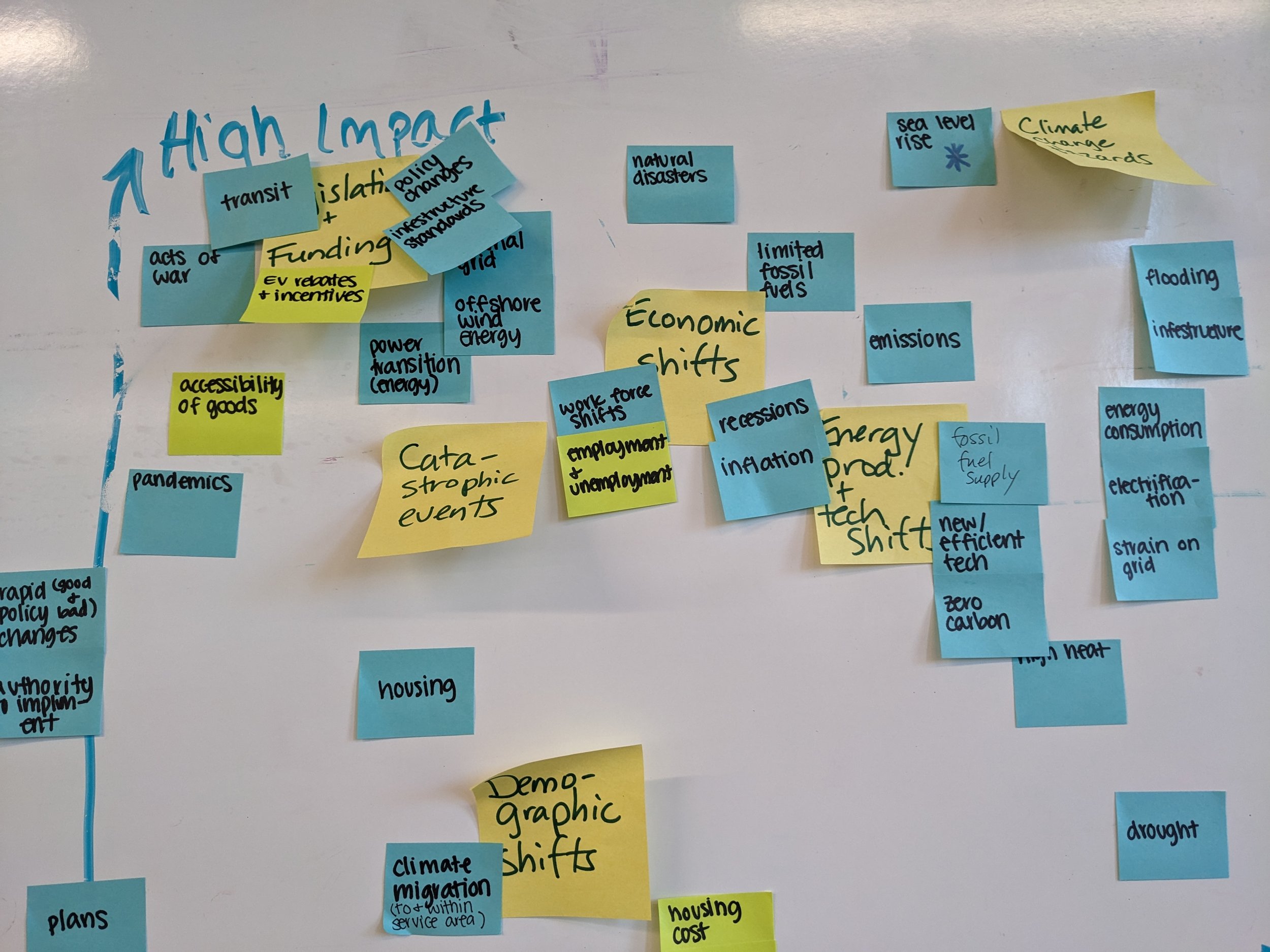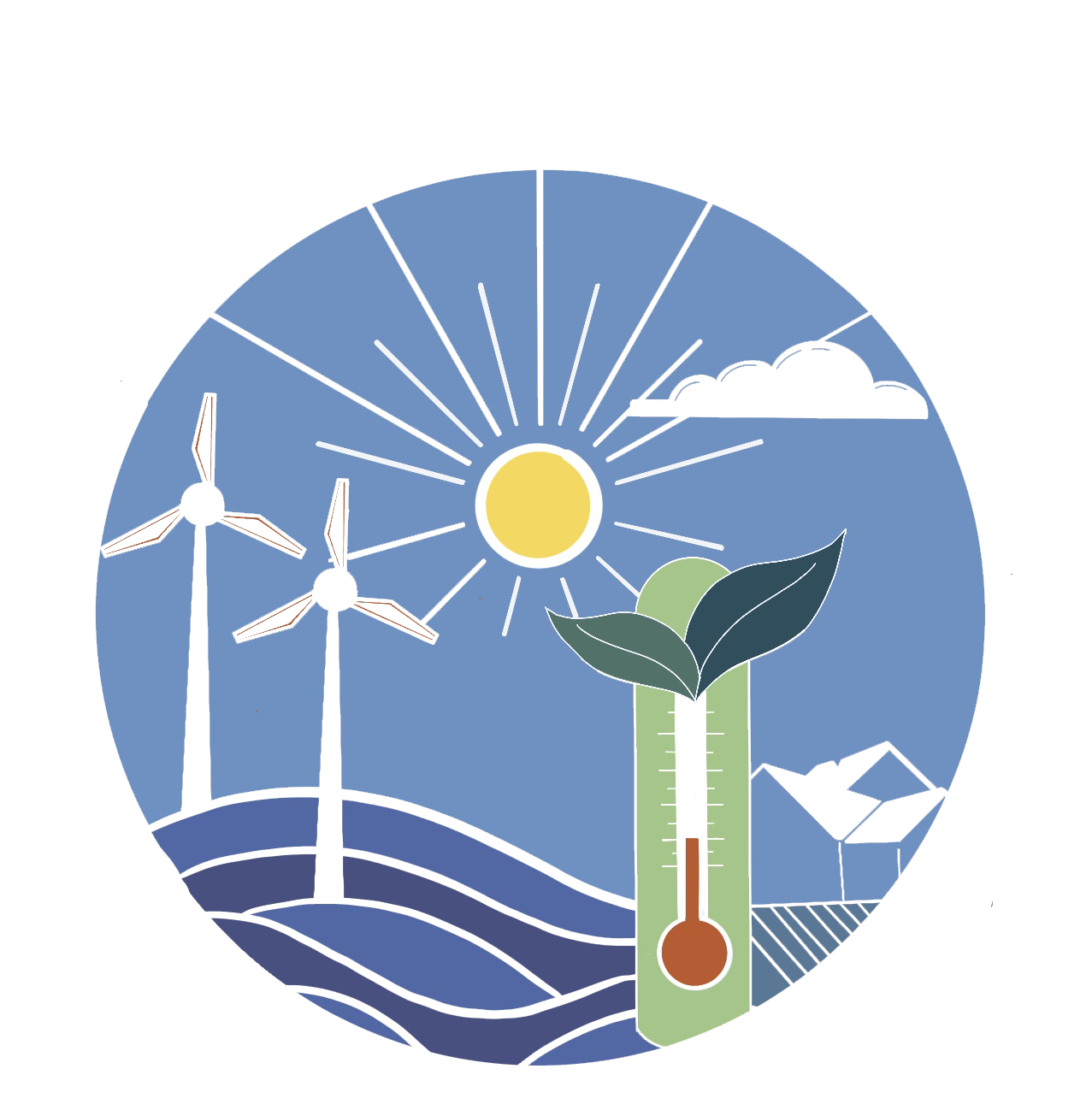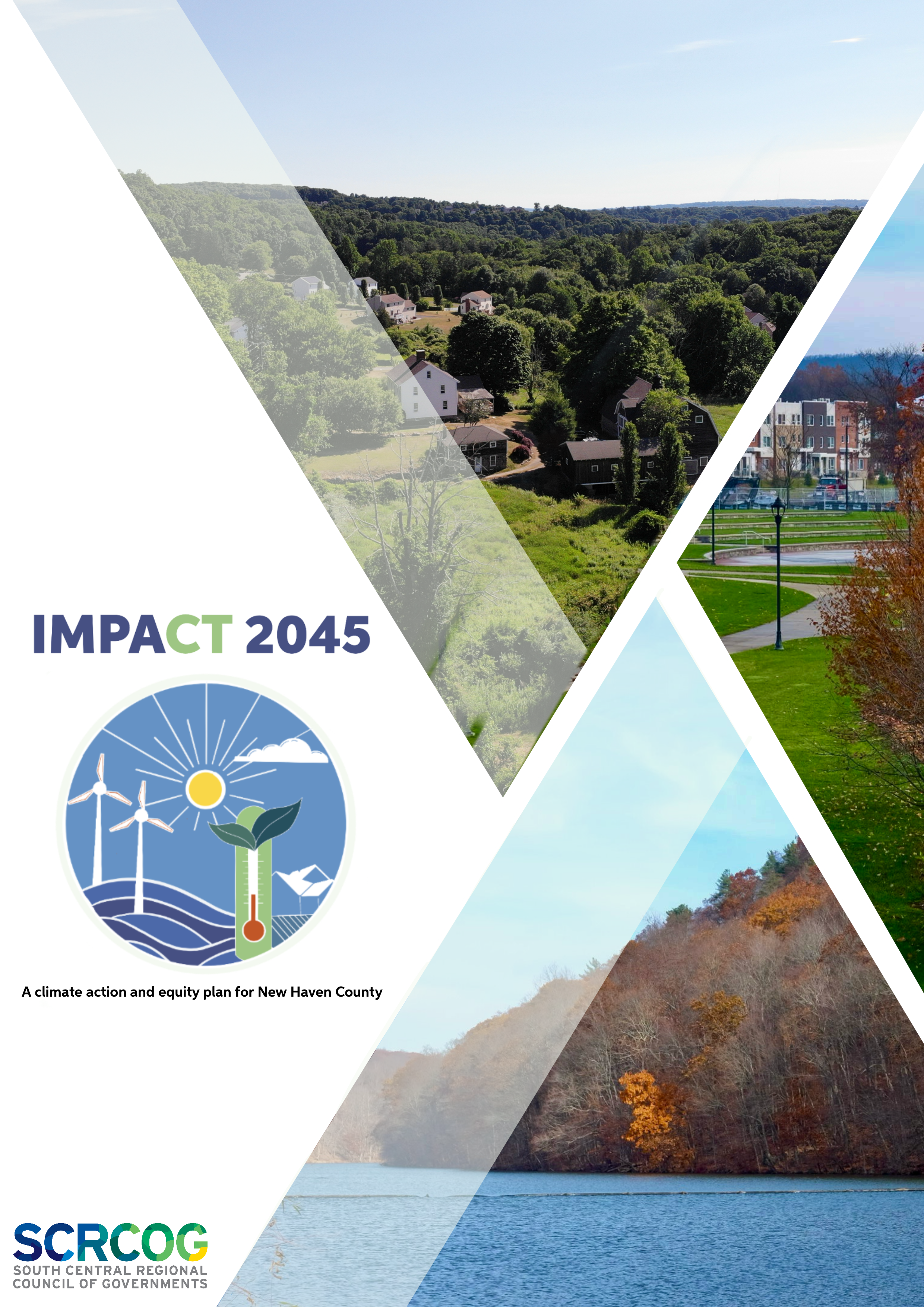
Impact 2045: A Climate Action and Equity Plan for New Haven County
The final version of the Priority Climate Action Plan (PCAP)is now available!
Executive Summary
ImpaCT 2045 is the Priority Climate Action Plan for the County, being funded by the Climate Pollution Reduction Grant program of the Environmental Protection Agency. This plan includes an analysis of our region based on the climate burdens identified by the EPA, Connecticut’s current climate action initiatives, and the needs of the communities living here. As part of this plan we designed a public engagement strategy for the County so that public needs are at the center of any mitigation efforts.
We have identified the following sectors as key sources of emissions and arenas for action through both our GHG inventory and through our study of best practices:
Since we have woven equity through every aspect of our plan, for each strategy that we recommend under our identified sectors, we have conducted a benefits analysis for Low-Income and Disadvantaged Communities (as identified by the Environmental Protection Agency) to ensure that at least 40% of the benefits of our recommendations are received by them. We recognize that planning for future means we need to account for uncertainties, which is why we adopted a Scenario Planning approach, and identified three scenarios that are a mix of both probable and preferable futures. This adds to the robustness of our strategies so that they stand the test of future uncertainties. Our mission is to create pathways to an equitable climate future and to improve the quality of life for all in South Central Connecticut.
Background
-
Connecticut and several of its municipalities have created strong plans to combat and prepare for climate change. Below is a timeline of the state’s major recent climate change actions, and a brief overview of climate change efforts within New Haven County.
-
New Haven County, situated in South Central Connecticut, encompasses a collection of twenty-seven cities and towns characterized by a diverse blend of urban, suburban, and rural landscapes.
With a population of 864,835, New Haven County comprises 28 rural, suburban, urban, and small-town communities that range from affluent to economically and socially disadvantaged. Its vulnerable populations face a variety of burdens, including high energy and housing costs, elevated asthma rates, exposure to air pollution, and risks of flooding and extreme heat from climate change.
Impact 2045 aims to reduce these risks and foster equity with near-term, high-priority, implementation-ready measures. The project is funded by the Climate Pollution Reduction Grant program (CPRG), which supports states and metropolitan areas to create and implement greenhouse gas reduction plans. The CPRG is part of the federal Justice40 Initiative, which requires that 40% of the plan’s benefits flow to low-income and disadvantaged communities. Impact 2045 will build on Connecticut’s existing climate mitigation policies, which mandate a 80% reduction in greenhouse gas emissions from 2002 levels by 2050, and zero carbon emissions from the electricity sector by 2040.
The Plan
-
-
Exploratory scenario planning is a process that helps planners, policymakers, stakeholders, and community members account for uncertainty across various futures. Scenarios are descriptive and narrative structures that illustrate future unknowns. Using a scenario planning approach allowed us to test the strength of policies in a form easily accessible to a general audience.
-
Public engagement should be transparent, accountable, inclusive and accessible. When public engagement is geared towards co-production, everyone can be empowered in decision-making. The more empowered the people of New Haven County are to improve their quality of life, the less likely this plan will sit on the shelf until it is too late in 2045.
The online-friendly version of the plan involves no PDFs, just clicking straight to where you want to go! At the bottom of each section, there will be links to other sections as well as one to lead you right back here.
Conclusion
Impact2045 provides measures for reducing greenhouse gasses across seven sectors in New Haven County. The strategies have been developed with a particular focus on addressing the needs of low-income and disadvantaged communities in the region. In addition to robust greenhouse gas reduction plans, Impact2045 provides essential tools to facilitate public engagement in the upcoming stages of this project. As the project evolves and progresses towards its next phase, we extend an invitation for your active participation and engagement with this work, as well as other related climate change mitigation efforts in the region.
If you are a community member, we invite you to read and comment on the PCAP+. Stay informed of important updates, including comment period openings, by regularly visiting our website. Beyond our work, there are opportunities for involvement at the local level. Consider volunteering, attending community meetings, and engaging with local climate initiatives.
For those in the public sector, we invite you to delve into the PCAP+ and the upcoming Comprehensive Climate Action Plan. Discover ways to collaborate with other agencies and organizations to amplify the impact of your entity. If you work in the private sector, we encourage you to stay informed through resources like PCAP+, foster collaboration within and across sectors, and invest in climate change mitigation efforts. Your meaningful contribution will play a crucial role in enhancing the collective resilience of our community.




